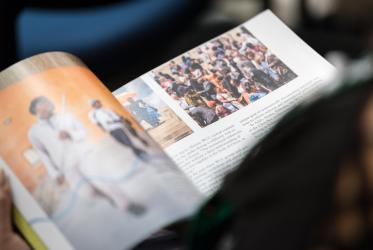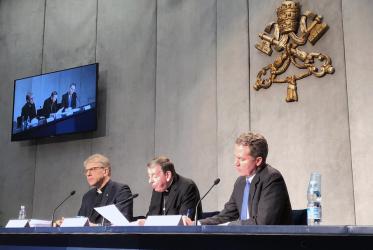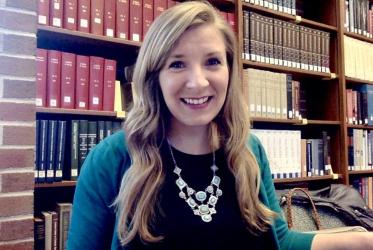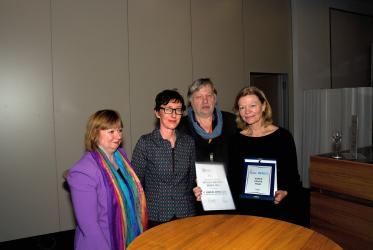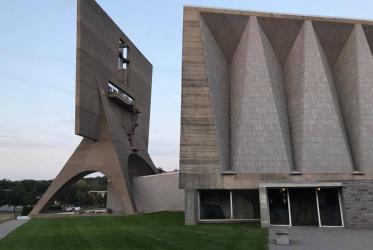Displaying 81 - 100 of 150
Broken glass of hope grown out of rubble
16 July 2018
Faces of Hope raises awareness
07 March 2018
WCC delegation visits Conference of Latin American Bishops
08 February 2018
WCC internship programme: A unique opportunity to learn and engage
01 February 2018
Peacemaking “a great and compelling life task”
09 December 2017
Tveit: search for unity “an urgent need today”
09 September 2017
In Argentina, stirring journey for human rights continues
01 September 2017
"We have our work cut out for us"
10 August 2017
Digitizing of Faith and Order Papers underway
23 July 2017



